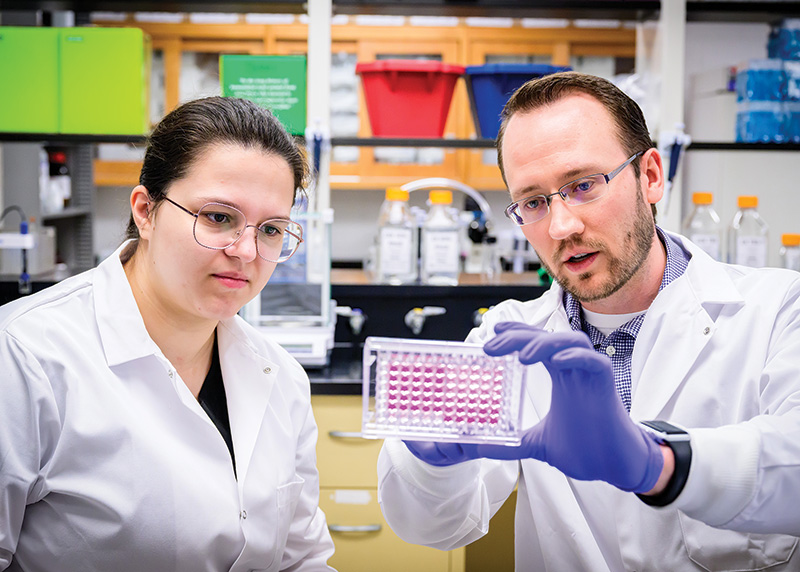

Canine soft tissue sarcomas are a locally invasive subcutaneous neoplasm in dogs. We have observed from many of our referred soft tissue sarcoma cases, the diagnosis is most commonly determined from histopathology following marginal tumor excision. Given the invasive nature of this tumor type, margins are often incomplete, which prompts referral.
You may find it surprising, but canine soft tissue sarcomas can frequently be diagnosed from fine-needle aspirates and cytologic assessments.
For step-by-step instructions for preparing your cytology slides, see Two Ways to Prepare Your Cytology Slide.
A pre-surgical cytologic diagnosis of soft tissue sarcoma can help better prepare for treatment(s). For example, having a cytologic diagnosis of soft tissue sarcoma, a surgeon will recognize that surgical margins need to be wider (to try to remove all local disease) than would be needed for removal of a lipoma or a different type of cancer.
Other treatment recommendations for soft tissues sarcomas (including radiation therapy, chemotherapy, and electrochemotherapy) are based on histopathologic grade, completeness of excision, and original tumor size and location.
The oncology team at the Veterinary Teaching Hospital is actively recruiting dogs with measurable disease for two soft tissue sarcoma trials (Table 1). It is important to consider referral for trials before surgical treatment.
| Investigational therapy | Objective | Incentive |
| Metronomic dosing of chlorambucil | Evaluate the effect on regulatory T cells and tumor vasculature | $1000 |
| Novel intra-tumoral therapy | Evaluate biodistribution of alhydrogel (vehicle agent) when injected by different methods | $2500 |
Soft tissue sarcomas are being used as a model tumor in these trials; however, our findings are expected to be broadly applicable, meaning they may eventually inform treatment of other cancer types.
Patient enrollment includes a financial incentive applied to costs of other treatment(s) or monitoring.
Other active or soon-to-be launched clinical trials in the oncology service are listed below.
For more information on any of these, please contact Rebecca Kamerer by email at rmoss81@illinois.edu or by calling 217-300-6453. See also the Clinical Trials webpage.
By Matthew Berry, DVM, DACVIM (Oncology)
Featured image by Fred Zwicky shows Dr. Berry (at right) conferring with veterinary student Brianna Moore, who conducts research in his lab.

Faculty Spotlight: Mariana Sosa-Higareda, MVZ

Neurologic Manifestations of Systemic Diseases

Faculty Spotlight: Stephanie Bruner, DVM, DACVD
College of Veterinary Medicine
3505 Veterinary Medicine Basic Sciences Building
2001 S Lincoln Ave. | Urbana, IL 61802